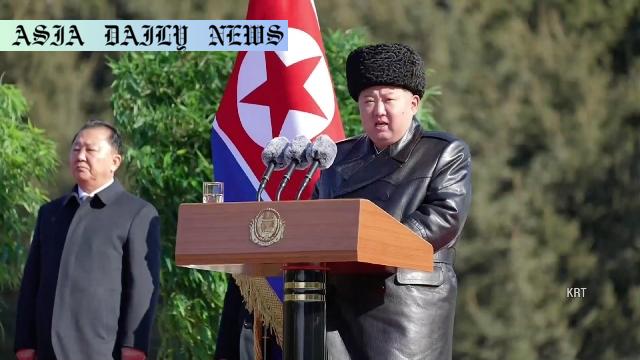Ideology emphasized, Kim Jong Un highlights making North Korea’s army politically and morally strong to address global shifts.
Kim Jong Un emphasizes the importance of strengthening the ideology of North Korea’s army.
State-run media highlights Kim’s speech on ideology at Kim Il Sung University of Politics.
The focus includes advanced military tech development, including nuclear armed forces.
Speculation exists that Kim seeks tighter control amid international tensions.

Kim Jong Un’s Focus on Ideology
North Korean leader Kim Jong Un has once again highlighted the critical importance of ideology in bolstering the nation’s armed forces. Speaking at Kim Il Sung University of Politics in Pyongyang, Kim outlined his vision for making the Korean People’s Army politically, ideologically, and morally stronger. The university, known for educating future military officers, served as an appropriate backdrop for his call to action.
The Importance of Ideological Strength
According to Kim, ensuring that the army operates with a strong sense of political and moral ideology is paramount in countering a rapidly shifting global landscape. The leader emphasized that this transformation is necessary to navigate challenges unprecedented in North Korea’s history. While technological advancements such as nuclear arms and modern weaponry were also on his agenda, Kim made it clear that a strong ideological foundation is the cornerstone of his strategy.
Military Strategy and Global Context
Kim’s remarks come amid significant international developments. The mention of “struggles for transformation” reflects the broader complexities of global geopolitics. Experts believe that by tightening his grip on the army, Kim is responding to North Korea’s involvement in international dynamics, including contributing troops to Russia during its ongoing conflict with Ukraine. Such actions likely necessitate heightened control over military personnel to prevent dissent and ensure loyalty.
Speculation Among Experts
Analysts in South Korea suggest that the emphasis on ideology is part of a broader strategy to maintain centralized authority over the military. The backdrop of international sanctions, economic hardship, and increasing diplomatic isolation positions the army not just as a defensive force but as a symbol of national unity and strength under Kim’s rule. There is also the possibility that this move signals efforts to ensure readiness and cohesiveness in case of escalating tensions on the Korean Peninsula or beyond.
The Bigger Picture
This fresh emphasis on ideological loyalty reflects a recurring theme in North Korean leadership, where maintaining control becomes essential in the face of external pressures. History has shown that the nation’s reliance on rhetoric and ideological solidarity often serves both as a deterrence mechanism and as a means to consolidate internal power. With Kim directing his focus on the political and moral fiber of the military, North Korea seeks to present a unified front that symbolizes resilience despite evolving global challenges.
Implications for the Future
As North Korea moves forward with its dual priorities of military modernization and ideological fortification, the world watches closely. Whether this strategy will strengthen the stability of Kim’s regime or create new ripple effects in global geopolitics remains uncertain. However, the emphasis on ongoing ideological training within the armed forces suggests that Kim envisions the military as not just a line of defense but as a critical lever in his broader vision for North Korea’s future.
Commentary
The Role of Ideology in North Korea’s Strategy
Kim Jong Un’s recent speech at Kim Il Sung University of Politics underscores the unique approach North Korea takes in prioritizing ideological cohesion within its military. In a world increasingly defined by technological advancements and global alliances, Kim’s emphasis on moral and political principles stands out. This strategy not only ensures loyalty within the ranks but also reflects the leadership’s long-standing reliance on propaganda and unity to sustain its regime.
Geopolitical Implications
North Korea’s decision to prioritize ideology alongside advanced weaponry signals an attempt to position itself uniquely on the world stage. By combining a strong ideological backbone with nuclear ambitions, the nation appears to be creating a multifaceted deterrence strategy. However, such moves also invite greater scrutiny and potentially harsher sanctions from the international community, making it a high-risk, high-reward approach.
Challenges and Future Prospects
Despite the rhetoric, North Korea faces significant internal and external challenges. Economic sanctions, limited resources, and growing dependence on nations like China and Russia place strain on the country. Internally, the emphasis on ideology suggests a need to combat potential dissent or wavering loyalty within the military. Looking forward, it remains to be seen whether these ideological initiatives will bolster stability or further strain a system already grappling with numerous pressures.


